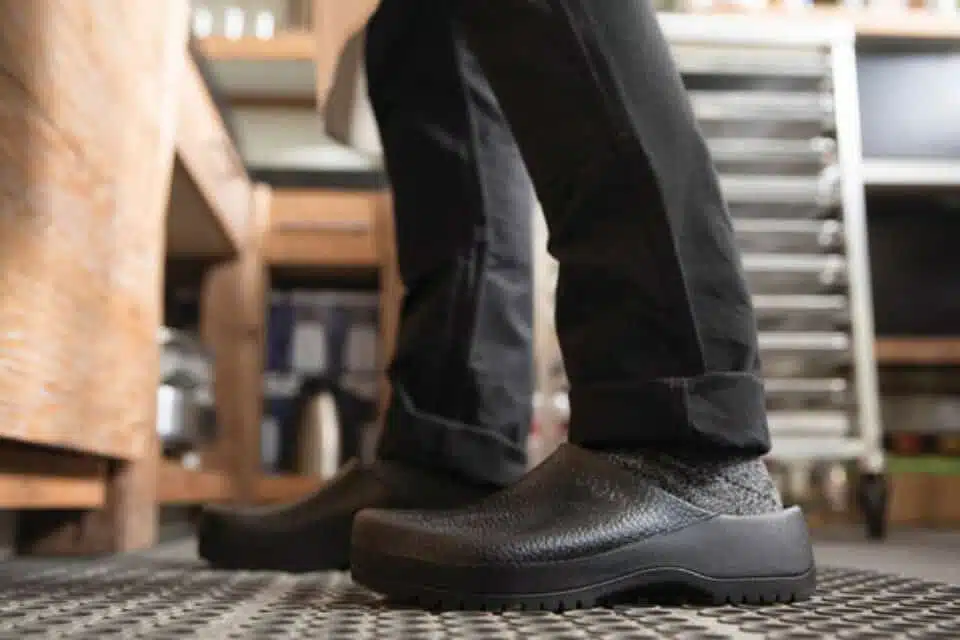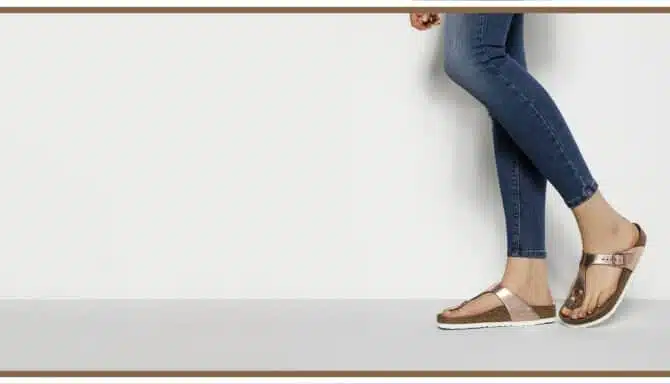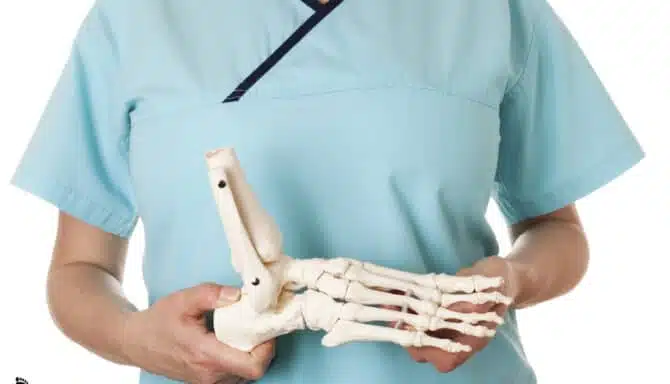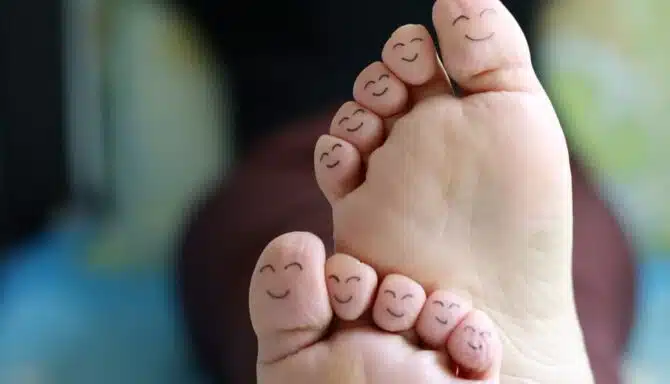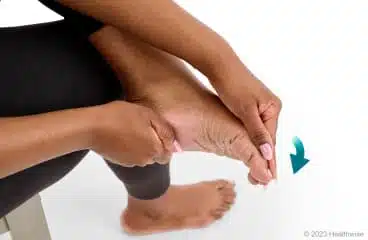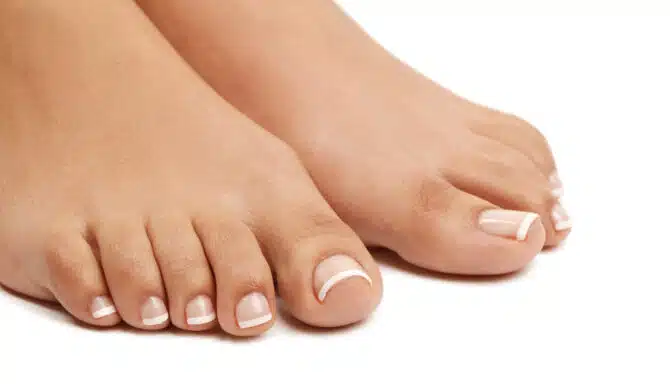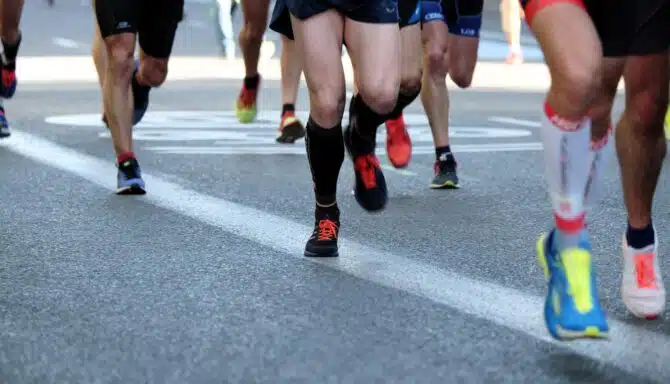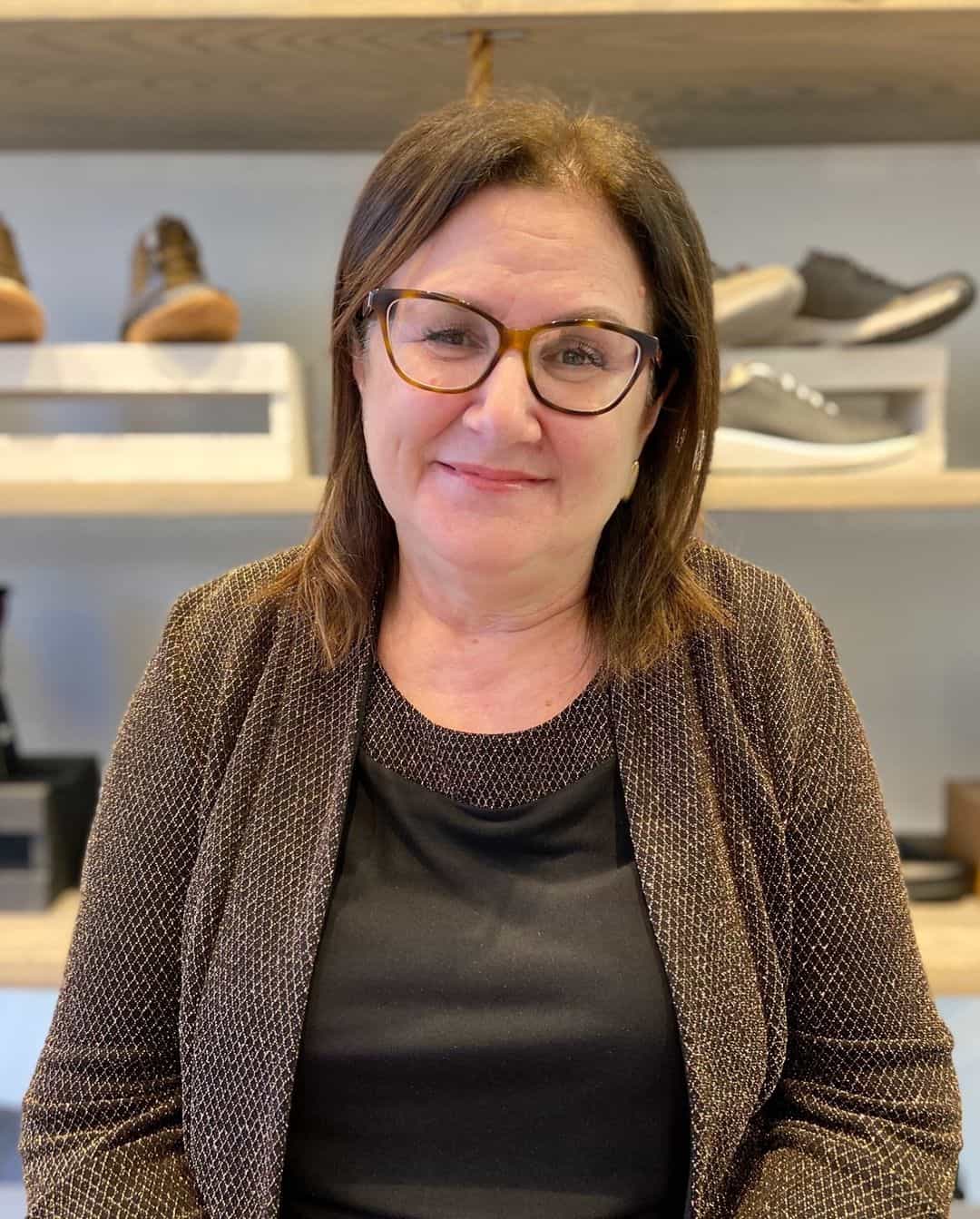The average person will spend 90,000 hours at work over a lifetime. To put that into perspective, that’s more than 10 cumulative years in equivalent time.
In fact, you may spend more time at work or on the job than at any other aspect of your life (with the exception of sleeping).
With such great time spent working, your job can have a huge impact on your feet, and quality of life. It’s not only the type of work but also the shoes you wear. Whether it’s a formal environment, or whether you wear steel-toed boots in a blue-collar industry, your job affects your feet and can have a major bearing on your body (and vice versa).
Different Careers = Different Foot Needs
Take a moment and think about your situation. Do you stand all day at work? Teachers, cooks, chefs, barbers, hairdressers, cashiers, manufacturing employees, and construction works all spend hours on their feet at a time. Meanwhile, other places of work may have certain dress codes. You may be required to wear formal attire including high heels and dress shoes.
What you wear has a great impact on you.
For example, standing all day in your job can expose you to the following foot conditions:
- Varicose veins
- Plantar fasciitis
- Lower back pain
- Soreness and fatigue
- High blood pressure
- Knee or hip arthritis
- Bunions
- Pregnancy complications
- Neck and shoulder stiffness
- Chronic heart and circulatory disorders
- Poor posture (and its effects)
- Various foot problems and pain
- Knee problems
- Swollen or painful feet or legs
- Achilles tendonitis
- Joint damage
- Poor circulation and swelling in feet & legs
Healthcare Professionals
Doctors and nurses are always on the go. With the hecticness of medicine, healthcare professionals are always on the go, often logging long and arduous hours. Much of which is on their feet. Because of long shifts, those hours can have effects on the feet including bunions, flat feet, toe deformities, and heel spurs.
For these reasons, it’s advised that healthcare professionals invest in the proper footwear that fit correctly to ensure the time spent on their feet is not damaging. Similarly, this advice can be applied to other industries with similar long hours including cooks, retail workers, and cashiers.
Additionally, investing in compression socks can help reduce swelling and inflammation of your legs.
Construction
Beyond the fact that construction workers need to wear boots all day, additional potential hazards exist. Traumatic impact like falling objects, accidents, and shock can all impact your feet. Ensure your workspace is safe and invest in proper boots that have adequate cushioning for the career you’re in. Shoes are not an area where you want to be overly frugal. Invest in your feet.
Teachers
Teachers spend most of their days on their feet. This stress can cause lower leg problems including arthritis, joint damage, lower back pain, and knee pain. Try to take regular sitting breaks every hour, even if it’s for a few minutes.
Invest in proper footwear that has the proper support and cushioning to protect your feet. Avoid using the same footwear as you do when exercising as footwear may be worn down in places. Wearing worn down shoes (from running for example) can cause joint soreness and misalignment since standing, walking, and running all have different impacts on shoes depending on your gait.
Outdoor Jobs
If you work outside all year-round, including in the winter, you’ll need winterproof footwear and socks to prevent frostbite. From the temperature to the climate, the elements can have a major impact on your feet. Wet feet mean added risk for blisters, athlete’s foot, and toe fungus. Conversely, cold feet are at an increased risk of frostbite, which causes irreversible damage to your feet.
Office Jobs
Then there are other jobs that don’t require you to stand all day. In fact, many jobs require the opposite – sitting all day. In these cases, you want to make sure you stay hydrated and get up regularly to avoid hip pain and tight muscles.
For example, if you work in marketing, sales, design, web development, data, as a lawyer, or in HR, you’re likely spending hours in front of a computer. Making sure you have a balanced work-life balance that involves adequate exercise is essential. And that may not be enough. Remember, you can’t simply reverse the effects of sitting for 7-8 hours a day with a few thousand steps.
Following a proper stretching routine, and incorporating strength training to avoid muscle imbalances is key for a healthy lifestyle. And to have healthy feet.
Plus, office jobs often have dress codes. If you wear formal footwear including high heels or dress shoes, think about the long-term impact they can have on your feet. Aim to either reduce the frequency of use or invest in comfortable and supportive dress shoes that are a hybrid between fashion and function.
Proper Footwear For The Job
Foot health starts with proper footwear.
Investing in the right shoes for the job is essential for the long-term health of your body. Here at the clinic, we have a select of great orthopaedic shoes available to help heal your foot problems and prevent pain.
Our clinic prioritizes a preventative approach to foot care in which the patient is empowered to be an active participant in his or her treatment. Our on-site shoe store provides patients with therapeutic tools and resources including orthopaedic footwear, insoles, medical devices, and over-the-counter solutions.
If you need assistance with shoe fitting or choosing the right shoe for you, don’t hesitate to reach out to us.
Your Solutions Live Here!
All under one roof. Our team is trained to handle any and all your foot health concerns.
From mild, to critical, we cover all sides of the foot needs spectrum. Call us to ask about actionable steps towards your solution today.
Call us at 416-769-3338 or Click to Book Your Assessment today.
